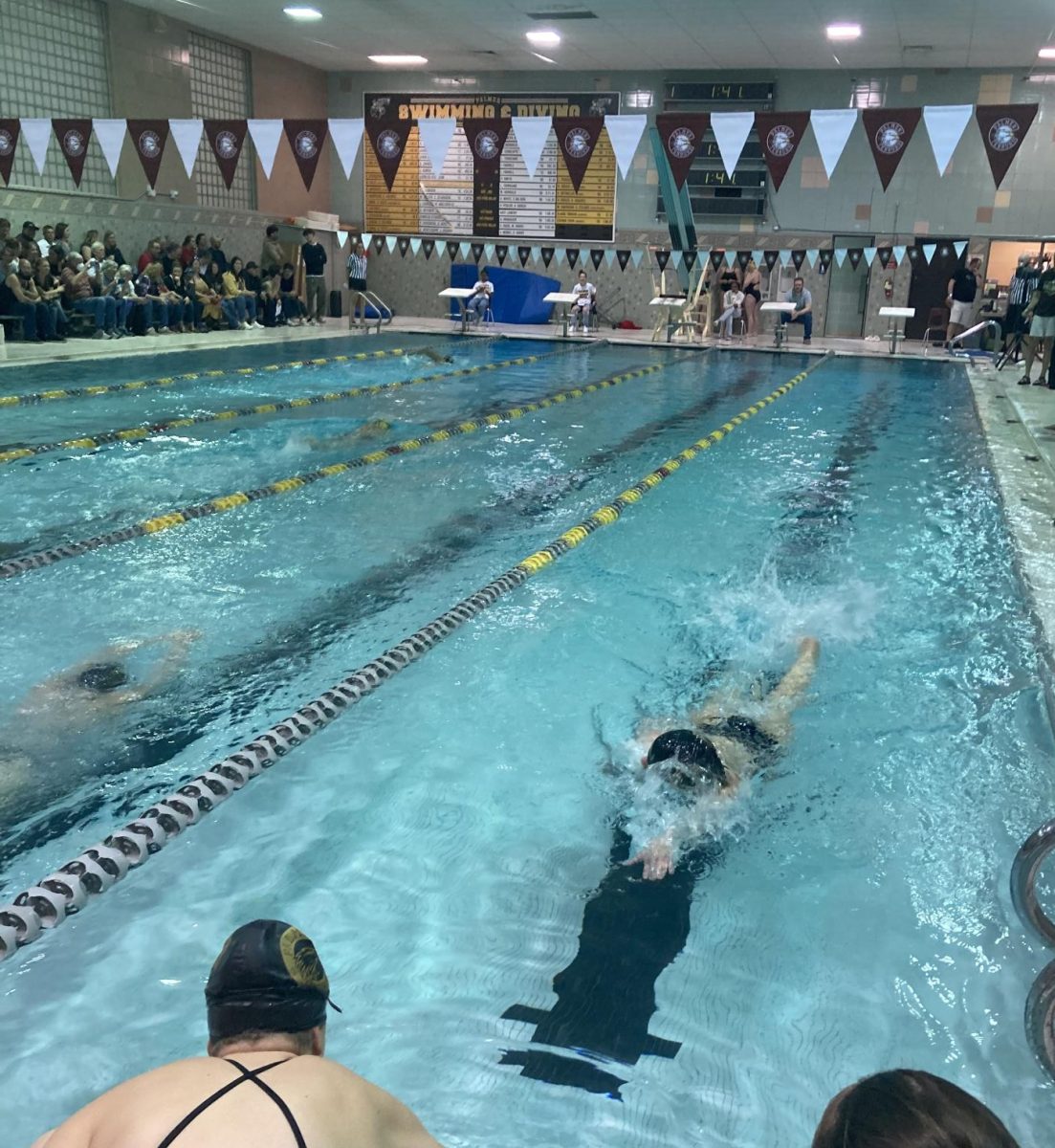From November to early February, every day after school, thirty-one girls are working hard in practice to prepare for their swim meets. Despite the sport not being as popular as other sports like basketball and volleyball, swimming is still one of the most rigorous sports out there.
For starters, swimming is an aerobic sport, and as physical activity increases your heart rate and the need for oxygen goes up as well. This makes your cardiovascular system work even harder, which makes you feel like you need more oxygen. However, in swimming you can’t get the oxygen that you need because you can only breathe every few strokes. It’s like running but without air which makes it about a thousand times more difficult. Emma Bahr is one of the three-sport athletes who is part of Palmer’s swim team. She says, “Swimming is really hard, not so much physically but also sometimes mentally.”
To swim, and swim fast you must have good breath control. In other sports, you still should have good breath control, however, it is not as crucial as the time you decide to take a breath. In most sports, athletes can get away with breathing subconsciously not even thinking about it. When you are swimming, it’s critical to always think about when you are going to breathe. For example, on the track, you are running fast-paced and sometimes for long distances, this gets extremely draining, but you still have access to the air you need. In swimming, however, you don’t have that air. If you try and breathe when you aren’t supposed to, you’ll breathe in water which causes the flap that covers the larynx (a hollow tube in the middle of your neck) to snap causing you to cough until your airway is reopened. An easier way of thinking about this is that once exposed to water, lungs can get irritated and swell up which after a while can cause a condition called Pulmonary Edema. Most people call this secondary drowning. So, if you don’t get to the surface in time to cough it all up, there is a high chance you have a spasm causing you to drown and die. This isn’t too much of a concern for any other sports besides swimming. To get another perspective, I interviewed Natalie Muro, and she agrees that she has also experienced this type of drowning at practice. However, neither she nor Emma personally consider this a big threat when jumping into the pool. Emma says that she only has trouble breathing when other factors in the pool are splashing water, “If you turn your head to breathe and like a diver jumps off the diving board at the same time, I get a big mouthful of water. And then I can’t breathe, and when I have to do a flip turn and then I’m like, oh, wow, I could really use some oxygen right now. But like for the most part, it’s not that bad.”
Swimming also uses a whole lot of muscles that you don’t use in other sports. In track, basketball, volleyball, soccer, etc. You are mostly using only your leg muscles. In swimming, you are using both your leg and arm muscles constantly. You must have a strong pull and a strong kick to swim quickly. If you can only kick or only pull you aren’t going to go very fast. Natalie says, “Swimming can get tiring at times, but you have to push through it.” This puts a lot of strain on your muscles, especially if you are a beginner. Because of this swimming is very physically draining and one of the most difficult sports you could do.

